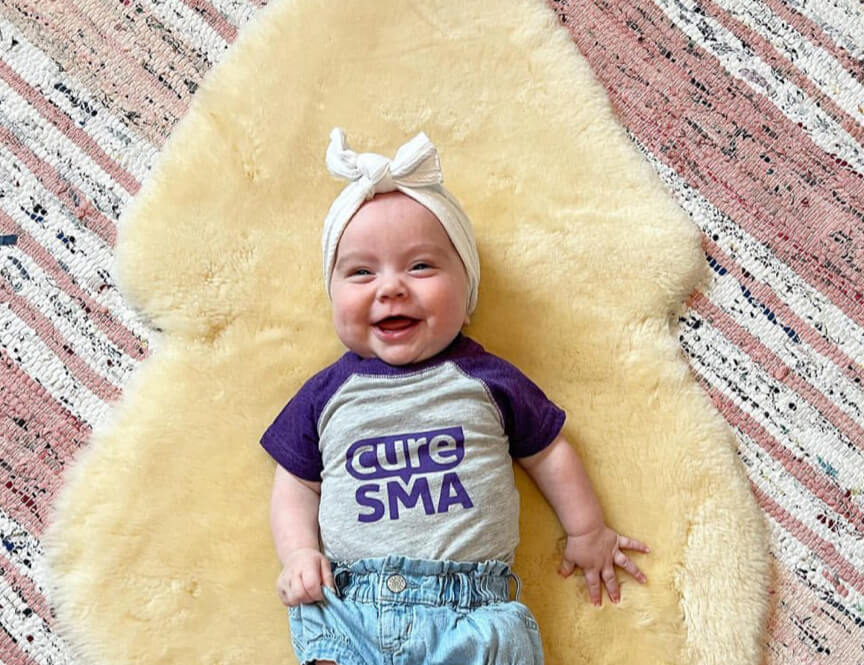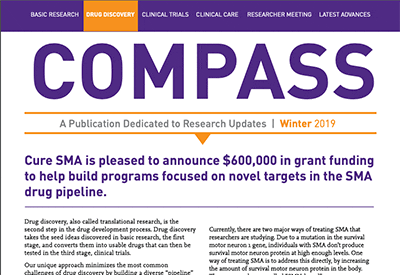Cure SMA, along with collaborators from Biogen and the SMA Foundation, have published a paper in the journal BMC Neurology.
In recent years, we’ve completed 16 focus group sessions and 37 interviews in the US with 96 participants including: 21 with individuals with SMA; 64 parents of individuals affected by SMA; and 11 clinicians who specialize in the care of SMA patients. The goal of this project was to document the perspective of individuals and families living with SMA.
Key Themes from the Focus Groups
Several key themes emerged from the responses collected from these projects.
This newly published paper focuses on defining meaningful change in drug development, and determining critical parameters for measuring change from the patient perspective. This qualitative study examined how individuals with SMA, their caregivers, and clinicians defined meaningful change, primarly in the Type II and non-ambulant Type III patient populations. In addition, we explored participants’ views about two measures of motor function routinely used in clinical trials for these SMA subtypes, namely the expanded version of the Hammersmith Functional Motor Scale (HFMSE) and the Upper Limb Module (ULM).
For the participants, meaningful change was relative to functional ability, and small changes in motor function could have an important impact of quality of life. Because patients and families feared progressive loss of functional ability, the participants saw maintenance of abilites as a meaningful outcome. They believed that measures of motor function covered important items, but worried that the HFMSE and ULM might not be sensitive enough to capture small changes. In addition, they felt that outcome measures should assess other important features of life with SMA, including the ability to perform daily activities, respiratory function, swallowing, fatigue, and endurance.

Psychosocial impacts of living with SMA were reported on in a first paper describing the results of these focus groups. The psychosocial effects of coping with SMA are substantial and wide-ranging both for the individuals living with SMA and their family. Ten areas characterized the impact: (1) confronting premature death; (2) making difficult treatment choices; (3) fearing the loss of functional ability; (4) coming to terms with lost expectations; (5) fatigue and stress; (6) stigma; (7) limitations on social activities; (8) independence; (9) uncertainty and helplessness; and (10) family finances.
Published, peer-reviewed journal articles like this are one of the most important ways for researchers to share information. Published results allow the experiments and results to be reviewed and vetted by other scientists and drug companies, who may then use these as the basis for further drug development. Both of these papers will help further incorporate the patient perspective into current and future SMA drug development research, by sharing it with the FDA and other drug companies.
Advocacy with the FDA
An important goal at Cure SMA is to add the patient voice to the drug development process. This paper is another step in this process, building on the first paper in the journal BMC Neurology about these focuse groups, and our Voices of SMA project that was released in 2015. As part of the patient-focused drug development initiative, both the stores from Voices of SMA and the findings from the focus groups will become part of the review process when SMA drugs are brought forward for approval.
Our next step in this process is the Patient-Focused Drug Development (PFDD) meeting that will be held at the College Park Marriott, near Washington DC, on Tuesday, April 18. Through this PFDD meeting, the FDA provides a forum where SMA patients, families and caregivers are invited to share their unique insight on the impact of SMA on their day-to-day lives. The FDA is also interested in gathering the SMA patients’ perspective on available treatment options and how well these may help to treat symptoms, strategies for managing their SMA, and expectations for approved treatments for SMA, amoung other important topics.



